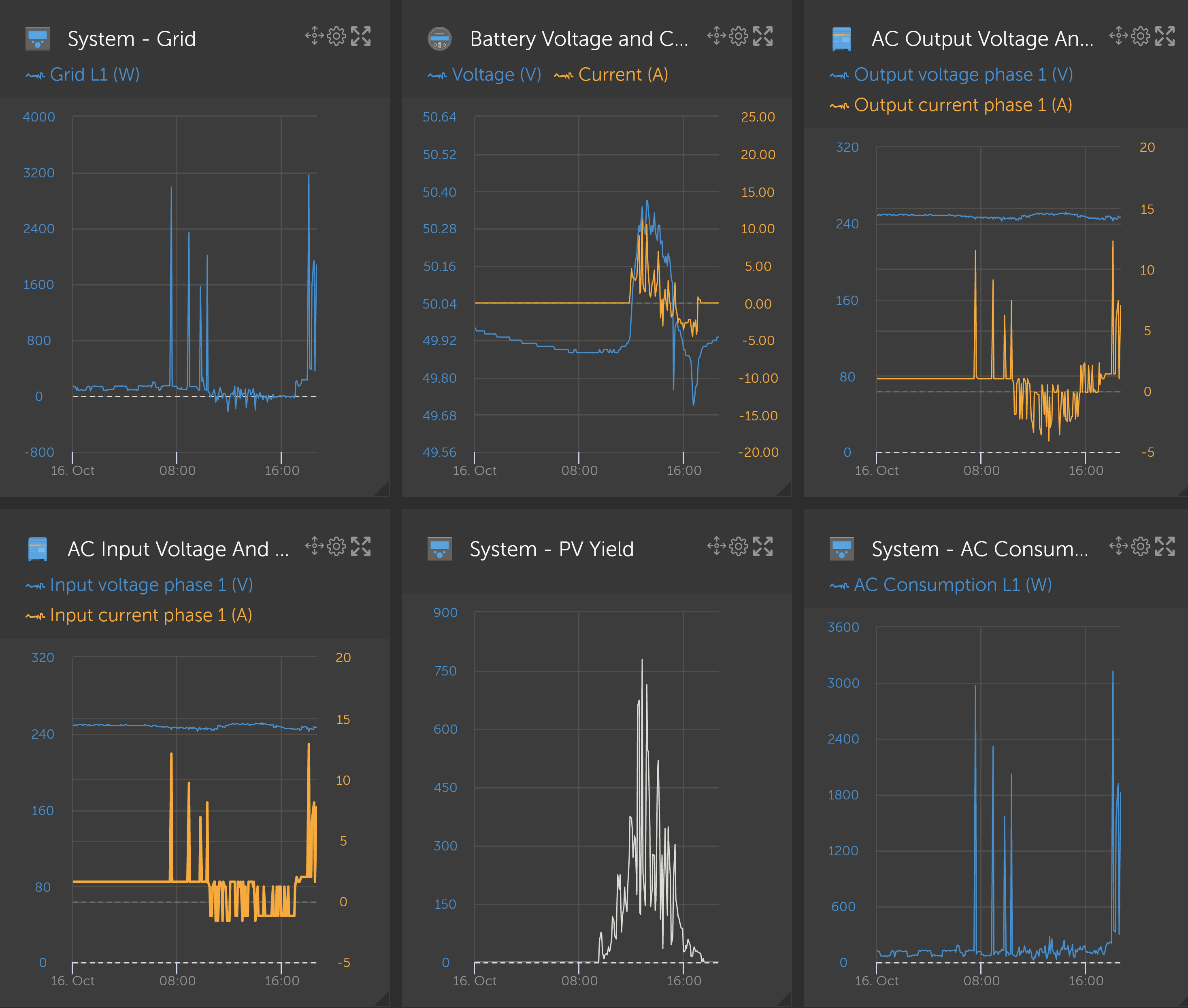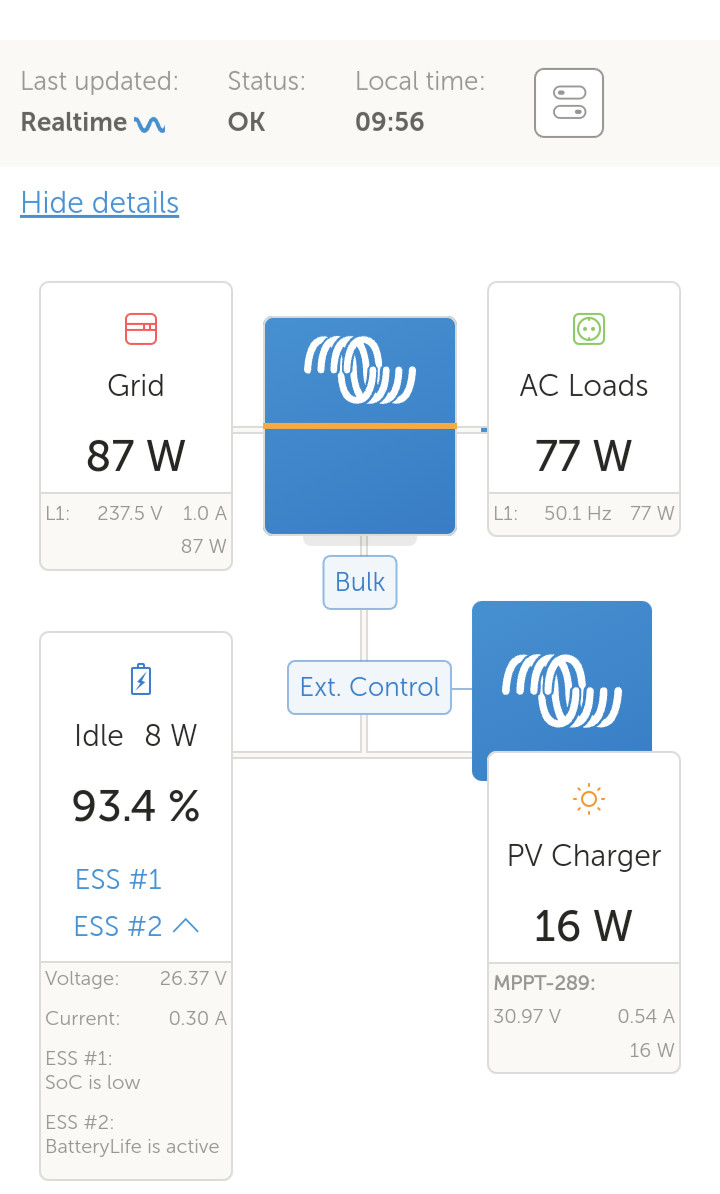This a re-post of a question from several days ago, but hopefully with much better focus and clarity - hope that's OK.
My ESS consists of Multi 2 48/10000, 4x Pylontech US5000 with an ac coupled PV array and Solaredge inverter.
After several days of monitoring it seems that the core issue I am concerned about is that the Pylontech batteries do not start to charge until the excess PV power reaches somewhere in excess of 200W. Thus the situation illustrated below can in pratice exist all day exporting all excess PV to the grid. Even ay circa 1kWh that is a loss of valuable energy at this latitude! I know the excess illustrated is only 73W but I have seen it sit consistently nearer 200W, I just don't have a screenshot of that.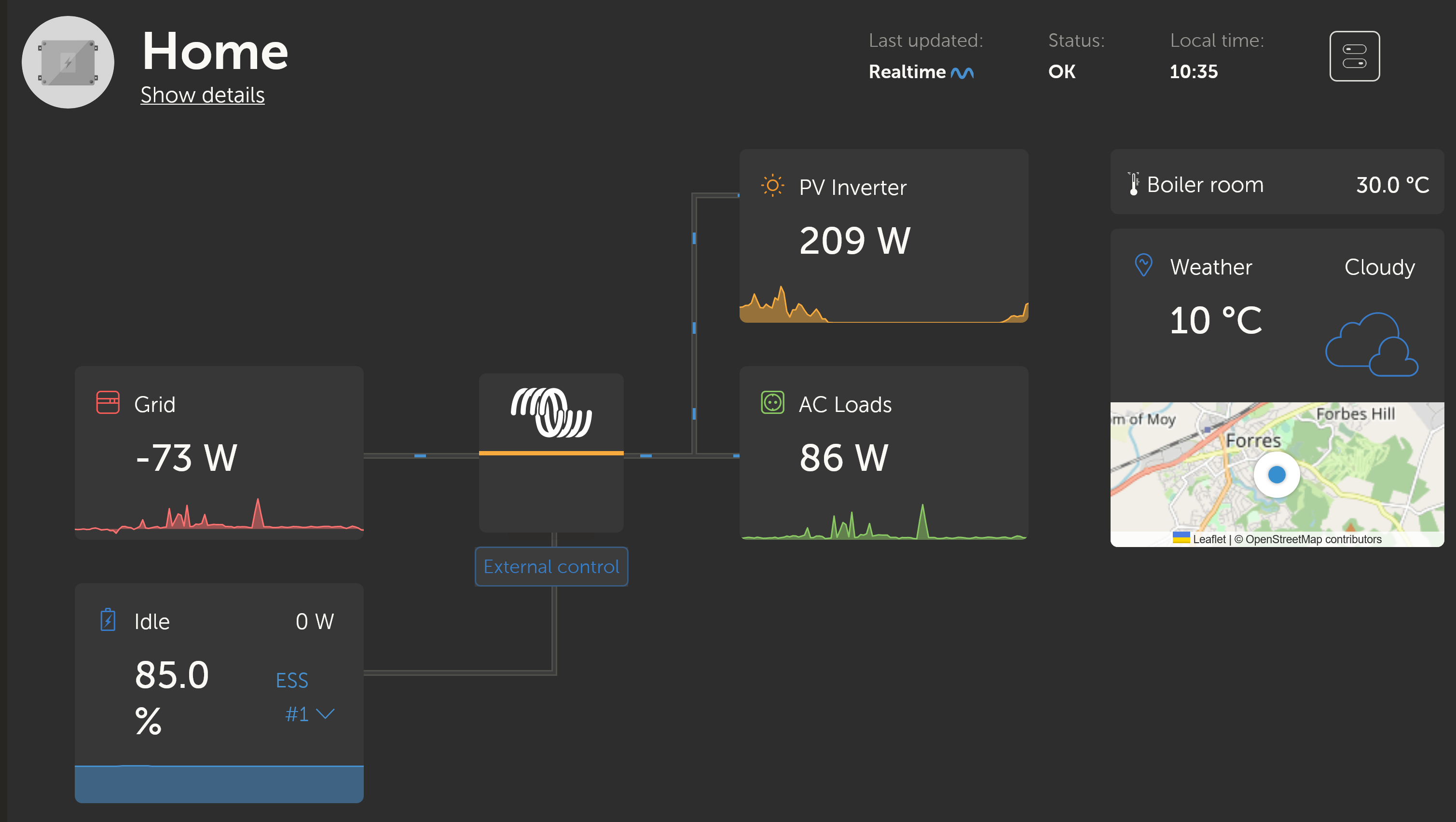 In theory I believe that ALL PV excess after powering the loads should charge the batteries which here are sitting at the set minimum SOC of 85%. That is not happening.
In theory I believe that ALL PV excess after powering the loads should charge the batteries which here are sitting at the set minimum SOC of 85%. That is not happening.
Today we have some usable sunshine, and the batteries are charging, but once again they only started to do so once the excess exceeded ~200W. It is as if there is some sort of minimum that must be exceeded to shift the batteries from 'Idle' to 'Charge'. I have contacted Pylontech, but surprise, surprise - no response. I can see nothing under settings that I can change that would influence this. Has anyone any ideas as to how this can be improved?
I also observe that the system seems very slow to respond to changing solar gain consequent upon the clouds that decorate the sky in the north of Scotland. Is this to be expected? When the cloud arrives the batteries keep charging at the same rate drawing power from the grid before the grid power drops away towards zero. When the cloud passes the reverse happens as illustrated below.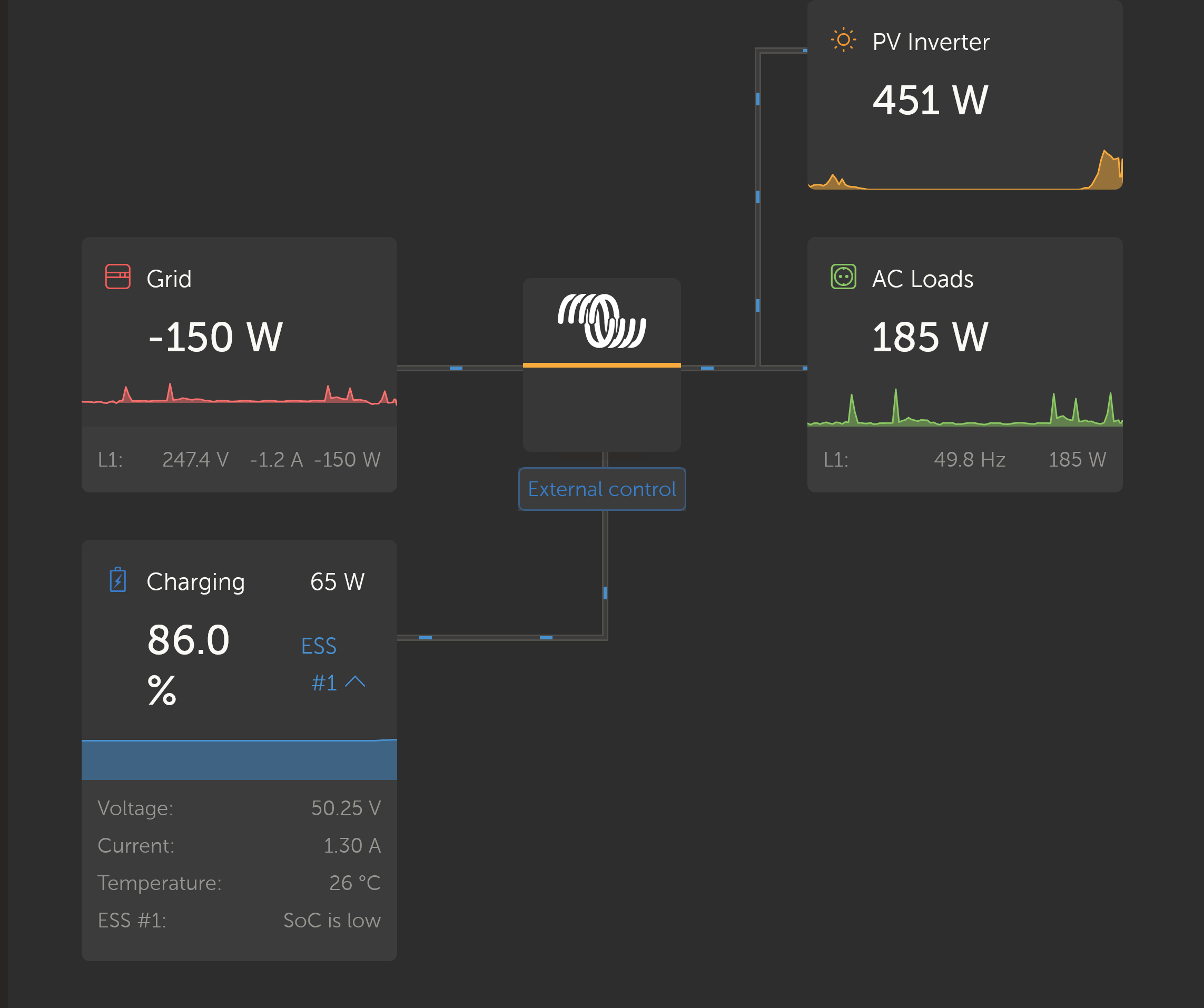 I presume that simply reflects how the multiplus algorithms work, but it is a shame it can't be more responsive.
I presume that simply reflects how the multiplus algorithms work, but it is a shame it can't be more responsive.
I hope this doesn't sound overly negative. This is my second Victron system. Overall I like the gear, and love the documentation and support provided by Victron and the forum. I just like to understand how systems work and optimise them as best I can.
I do hope there is someone who can cast light on this. I could find no similar reference in the forum.
Thanks to all.
David

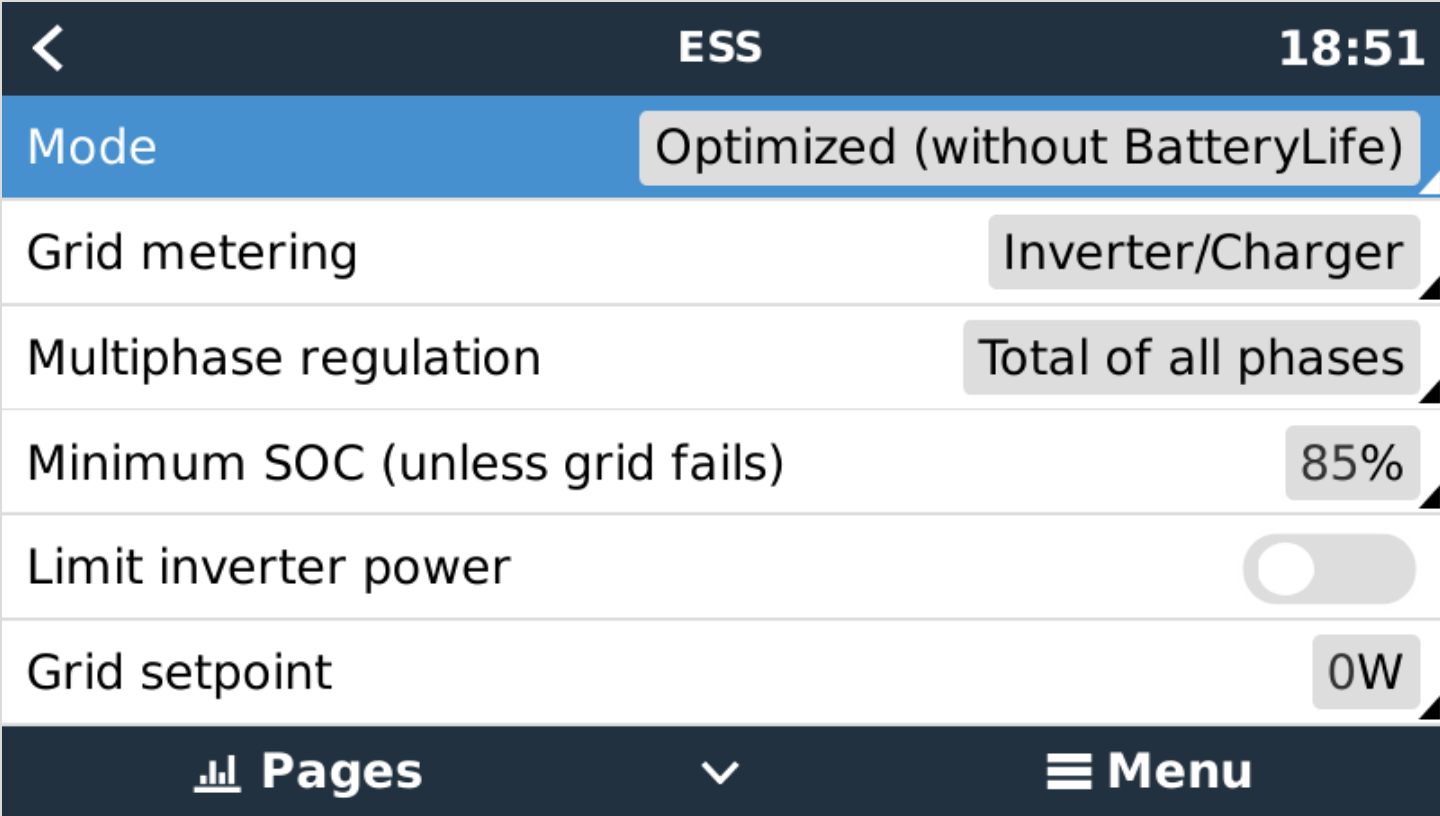
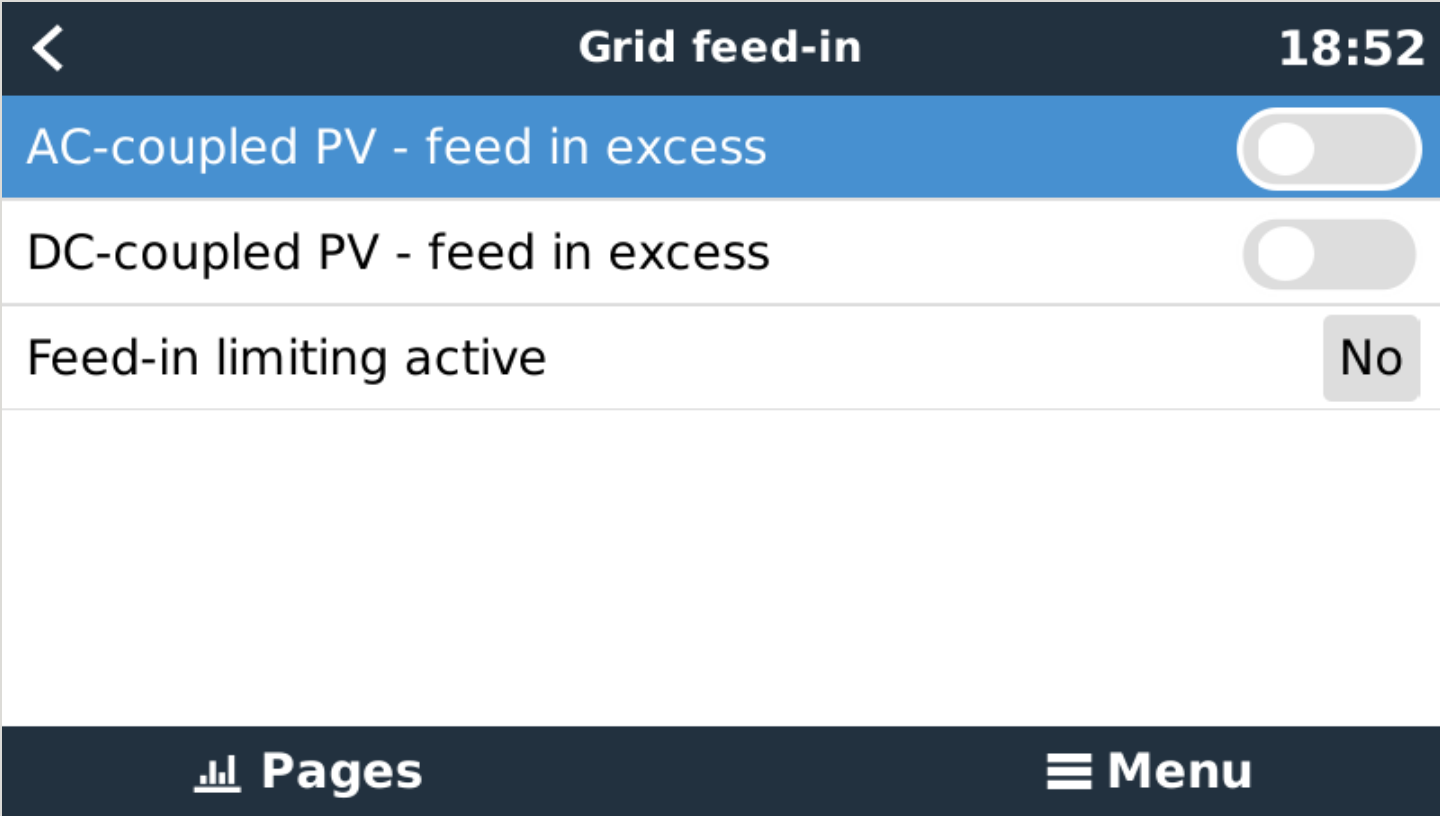 I'll watch what happens.
I'll watch what happens.